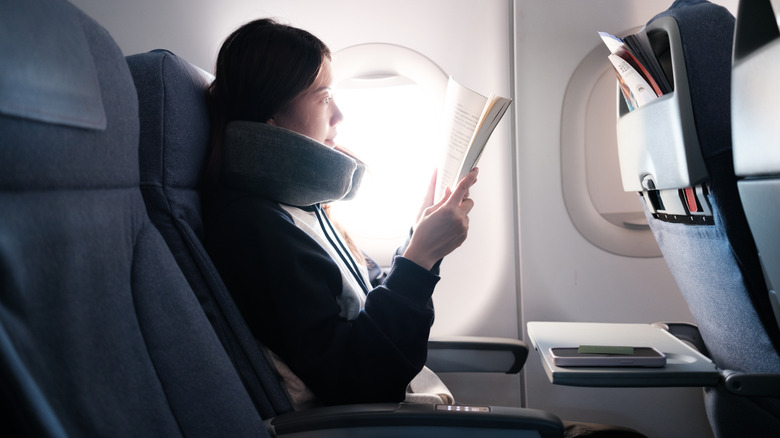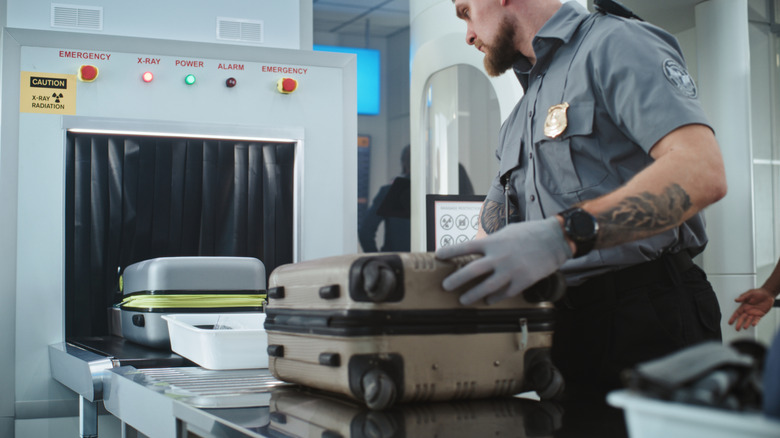The Type Of Reading Material That Might Get You In Trouble With TSA Airport Security, Even If You're A Celeb
Books are usually seen as harmless travel companions. However, in some cases, even fiction can trigger real-world suspicion. This is exactly what happened to Oscar winner Benicio del Toro, whose reading material once got him into a pretty uncomfortable federal misunderstanding.
During an appearance on "Late Night with Seth Meyers," del Toro recounted the surreal experience. He was going through security at Boston Logan Airport, on his way to Los Angeles, when he was pulled aside after a TSA agent searched his bag and found a printed script. "The opening scene is 'Interior Airplane: Bomb'," shared del Toro. "The second scene is 'Interior Cockpit: Eject the Pilot' and the third scene is 'Crash'." Out of context, those lines raised immediate concerns. It turns out, however, that this was the screenplay for "The Phoenician Scheme," a Wes Anderson spy comedy that had yet to be announced publicly. Worst of all, the blunder almost got him detained.
Del Toro tried to explain that it was a film script, but security protocol kicked in anyway. The screenplay was examined page by page, and five agents soon surrounded him. A supervisor eventually joined the scene, possibly recognizing del Toro, and allowed him to board after confirming the document was, indeed, a movie script. Although the incident was played for laughs, it can serve as a reminder that books, or any type of text, can trigger alarms at TSA — especially if they contain anything related to bombs in airplanes. Believe it or not, though, a potentially suspicious screenplay isn't even on the list of some of the weirdest things TSA has found and confiscated before.
Learn your rights when questioned for reading material
TSA doesn't ban books or screenplays, but that doesn't mean they can't raise suspicion — especially if titles, covers, or keywords resemble something TSA agents might consider dangerous. Similar instances have happened in the past, and the American Civil Liberties Union (ACLU) even warns that, despite constitutional protections, First Amendment expression isn't immune from scrutiny at the airport.
In 2010, for example, the TSA detained and even handcuffed Middle Eastern Studies major Nick George for almost five hours for carrying flash cards in Arabic and a book critical of U.S. foreign policy. Along with that, the Department of Homeland Security's traveler database has reportedly tracked millions of Americans' travel data — including companions, belongings, and even books they consider controversial, as per The Washington Post. That said, it's important to keep in mind that under no circumstance can TSA look through an e-book reader or other data-storage device. They can, however, ask to swab your phone or laptop for security reasons, but that shouldn't involve them looking through your private information.
Additionally, if your privacy is violated or you're treated unfairly because of what you're carrying, it's worth submitting a complaint with both the DHS Office of Civil Rights and the TSA, as well as notifying the ACLU. Ultimately, if you're traveling with reading material that's politically charged, satirical, or just poorly timed, don't be surprised if it invites questions. As del Toro's story proves, even a script meant for laughs — among other seemingly normal behaviors that'll have TSA agents watching you like a hawk — can get you flagged.

